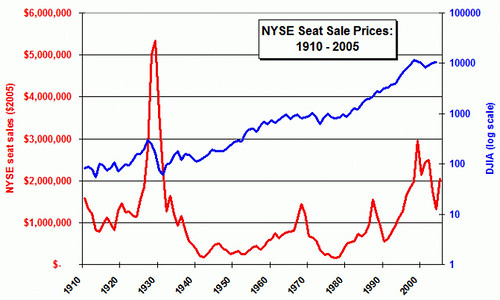There is no doubt that much of the run-up in housing prices during the past few years has been demand-driven. Low mortgage rates, combined with zero-principal mortgages and rising incomes have all contributed to the increased demand. [i.e. declining prices of complements and increased incomes both shift the demand curve to the right].
But it appears that housing prices have risen much more in some places than in others. One possible explanation for this differential is that demand has increased more in the big cities than it has in smaller towns. Another is that supply curves are steeper in big cities than in smaller towns. If this sounds a bit like
Henry George land-based economic analysis, it probably is.
For the large, megalopoli on the coasts, the price elasticity of supply appears to be low, in part because of regulations and in part because of geography-induced land shortages. From the weekly newsletter from
Smart Economist [see the Blogad on the right], summarizing a recent paper:
On the whole the paper contains an important message: public intervention in the housing market may have strong, sometimes undesirable, and perhaps even unintended effects on supply, and therefore on the price of houses.
At the same time, in the Midwest (generally speaking) and in smaller towns, growing demand has not caused massive price increases for housing because the price elasticity of supply is considerably
higher -- developers turn more farmland into suburban developments in response to relatively small price increases with considerably less difficulty than in areas surrounding the large cities.
The result is that we have seen what many have dubbed a "housing bubble" in large cities, but increased demand either hasn't reached smaller urban areas, or, if it has, it hasn't had nearly the same effect on prices.
In the extreme, the supply curve is very steep in large cities and more nearly flat in smaller urban areas. Under these conditions, equal shifts to the right of the demand curves cause big price increases in the big cities and smaller changes in the smaller cities.
Labels: Housing



